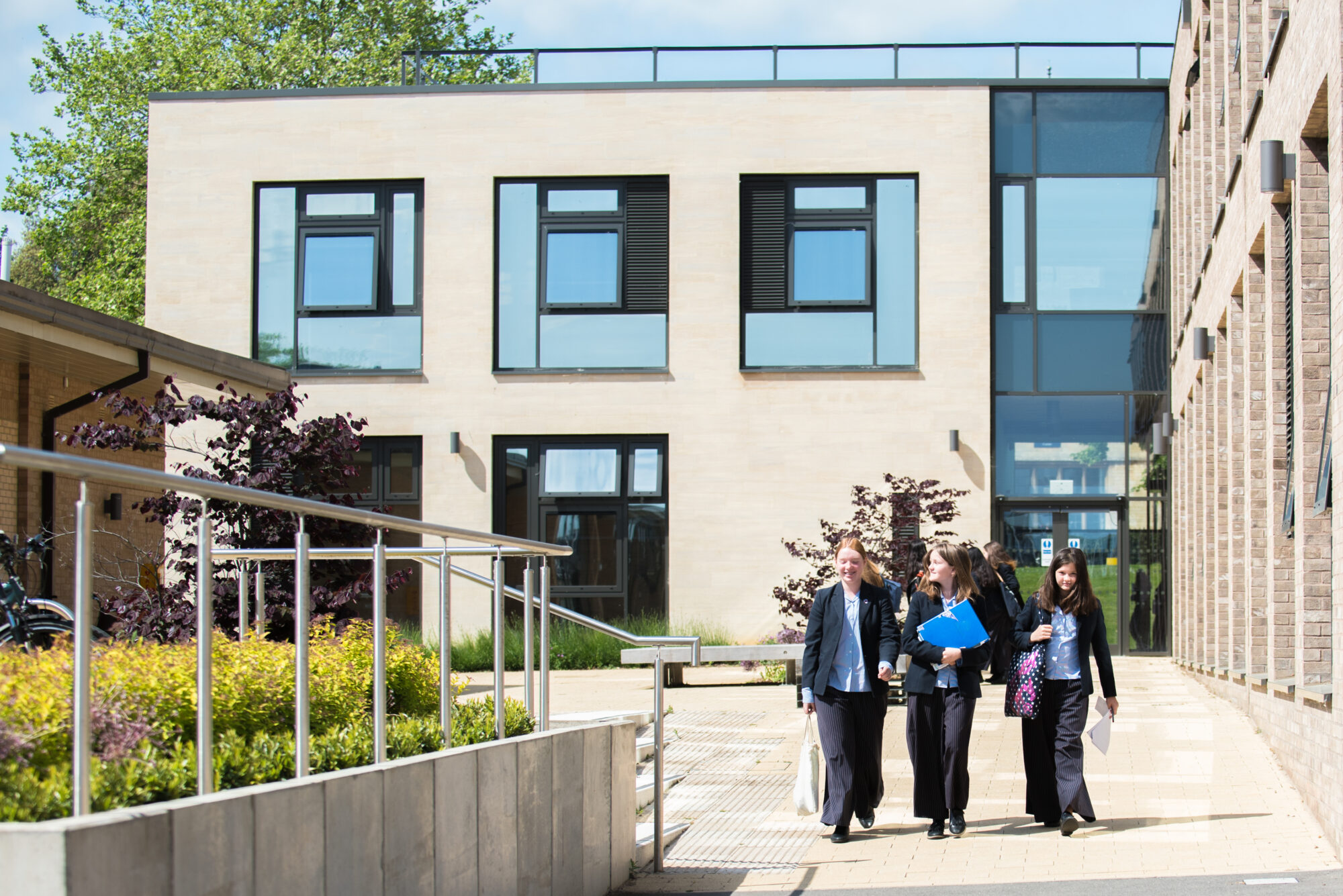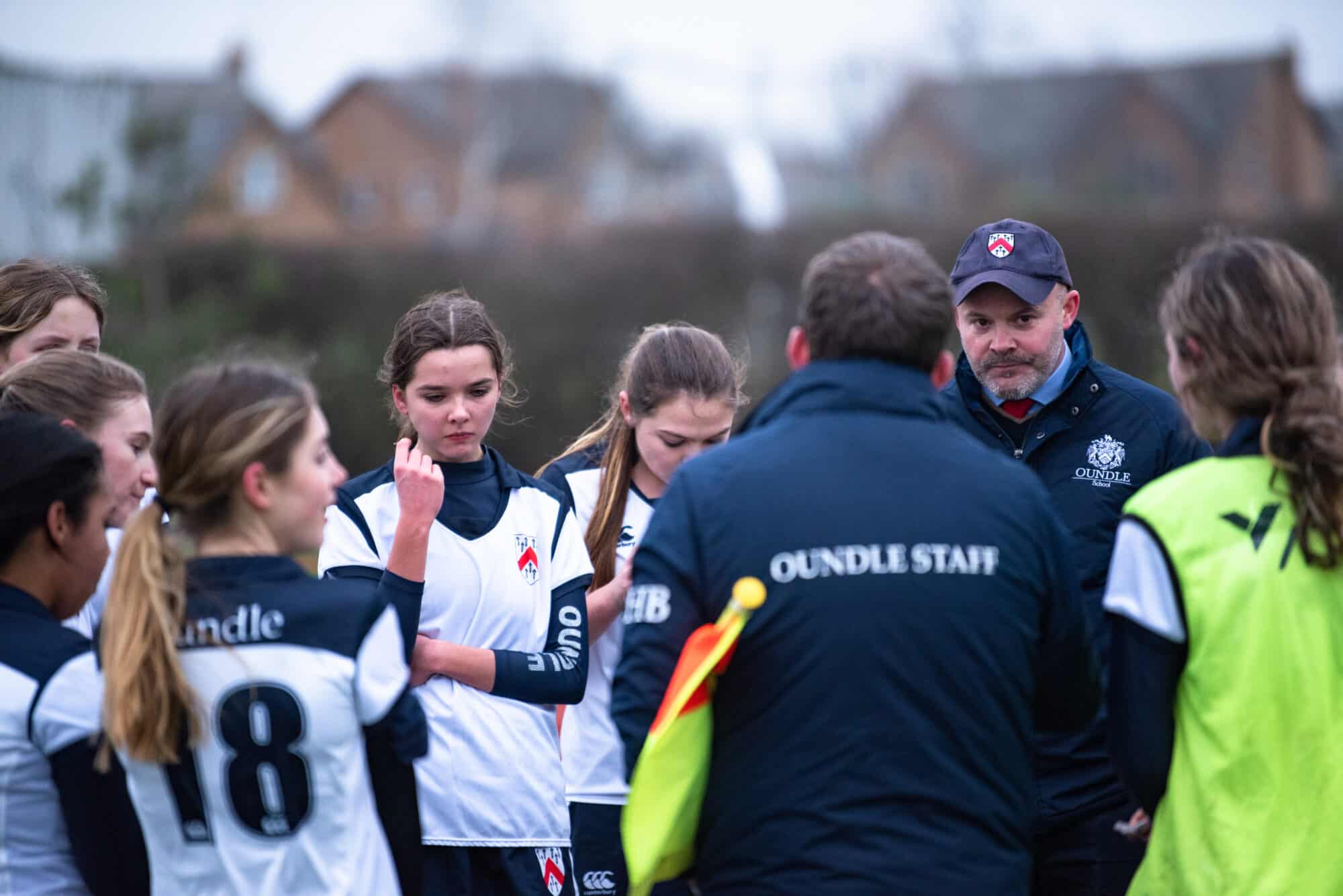As he nears the end of his first year at Oundle, I caught up with Adam Baragwanath, Deputy Head, Academic, to find out a little more about him, his first impressions of Oundle, his professional priorities and his hopes for Oundelians.
Can you tell me a bit about your background and what brought you to Oundle?
My academic passion has always been the Sciences. I spent quite a long time at university, completing a four-year degree and then a PhD at Durham in quite a niche aspect of Physics. It was during that time, especially in the undergraduate labs, that I developed a love of teaching which led to completing my PGCE at Oxford. After a stint as a teacher of Physics at Bradford Grammar School, I moved to Brighton College where I enjoyed several roles over eight years, including Head of Physics, Director of Science, Deputy Director of Studies and, more recently, Assistant Headmaster (Co-curriculum and IT Strategy). I absolutely loved this breadth and gained a much greater appreciation of the interplay between the co-curriculum and the academic curriculum. However, as time went on, I missed the deep connection with the academic side and when I saw the role at Oundle, it seemed the right opportunity to move on.

Oundelians have got something about them that is quite distinct...they are warm and genuine; they want to succeed but equally they take things in their stride and enjoy academic study for what it is rather than feeling pressured to perform.Adam Baragwanath
What was your first impression of Oundle?
I had looked at a number of schools but the feeling I had from the moment I arrived in Oundle was something else entirely. Everyone I met was so welcoming, the pupils were balanced and articulate and, while I couldn’t put my finger on it, I felt that this is where I want to be. In my interview I had to teach a lesson; the pupils clearly wanted to be there, they wanted to learn and they were fully engaged, asking brilliant questions. Oundelians have got something about them that is quite distinct. They are warm and genuine; they want to succeed but equally they take things in their stride and enjoy academic study for what it is rather than feeling pressured to perform. I have been blown away by just how much they get involved in across the life of the School while studying at an exceptionally high level.
What are your hopes for Oundelians from an academic perspective?
Essentially, I want them to be exposed to as many different subjects and ideas as possible from a young age and to experience a cohesive journey all the way up to A level. It is important to ensure that the curriculum is continually balanced between content, concepts and skills. As pupils move up through school they should enjoy greater depth to their learning so that, when they do go on to the next stage of education at university or elsewhere, they will always have that foundation that will support them.
In my experience so far, it is the culture and the academic integrity of Oundle’s approach which are so impressive.Adam Baragwanath
How would you describe Oundle academically?
Oundle is often described as highly academic and for some that can be a little bit off-putting, implying that there is a very high bar of academic ability needed in order to succeed. In my experience so far, it is the culture and the academic integrity of Oundle’s approach which are so impressive. What is amazing about the teaching staff here is the balance of those with years of experience, who simply love teaching and are excited about living out a career in the classroom, with those who are new to teaching, bringing new ideas and approaches to bear. Oundelians perform exceptionally well, progressing to the most competitive universities and often to read the most competitive courses, because they make the most of all the academic help and support on offer here and they create a culture of learning among their peers. If you are in that environment and everyone around you is sitting down to work and talking about learning, naturally you will be brought along with that.
What is your position on league tables?
Mainly that they should be taken with a big pinch of salt. One of the things that attracted me to Oundle was the integrity of approach to public examinations and the principled decision making behind the curriculum offer. It is not a school which plays the system for the sake of results. For example, Oundle insists on a language being studied to GCSE level because it benefits the pupils’ education, fostering skills, interest in different cultures and broadening horizons. There are many schools which would simply drop this requirement because the subject is considered difficult and therefore doesn’t always suit league table performance. At A level, which is probably the last time in a pupil’s life that there will be an opportunity to sit together with peers and subject-specialist teachers and learn in such depth, we insist on four subjects so that no pupil closes doors too early to university courses and careers.
What is the significance of the co-curriculum for academic success?
The partnership between these two strands at Oundle is integral to the academic development of a child. Every single member of the teaching staff is involved in the co-curriculum to a large degree, which isn’t often the case for schools. One of the big advantages of this is that both teachers and pupils get to see and know each other in a very different light to the classroom, which makes for better and more meaningful relationships.

Every single member of the teaching staff is involved in the co-curriculum to a large degree...one of the big advantages of this is that both teachers and pupils get to see and know each other in a very different light to the classroom, which makes for better and more meaningful relationships.Adam Baragwanath
What lessons have been learned from the pandemic?
Education has changed significantly and, quite simply, we recognise that being in the classroom is the best way of educating young people. It cannot be done through a screen. It is essential that we look to cognitive science to understand how pupils learn best and what we can do as educators to facilitate learning. It is why a focus on teaching and learning within the staff body itself is so crucial. For example, recent concentration on retrieval practice at Oundle has meant that teachers think more carefully about structuring lessons in such a way to boost memory and bring information to mind readily, supporting pupils to embed things in their long-term
rather than short-term memory. We need to ensure that as they develop, pupils engage intellectually with bigger concepts and ideas and do not simply end up trying to juggle knowledge that they feel they should know with new knowledge they are trying to assimilate.
I would also like Oundelians to explore more of the different options that are now available post A Level, especially the growth in degree apprenticeships which suit bright, ambitious and articulate young people. These have burgeoned and enable the pursuit of an academically rigorous degree alongside a role in a professional organisation, with the outcome of a seamless career transition. The Dyson Institute of Engineering and Technology is a fantastic example of this.
And finally…what message would you like to leave pupils with?
That’s very simple. Make the most of Oundle and don’t be one to look back with regrets.